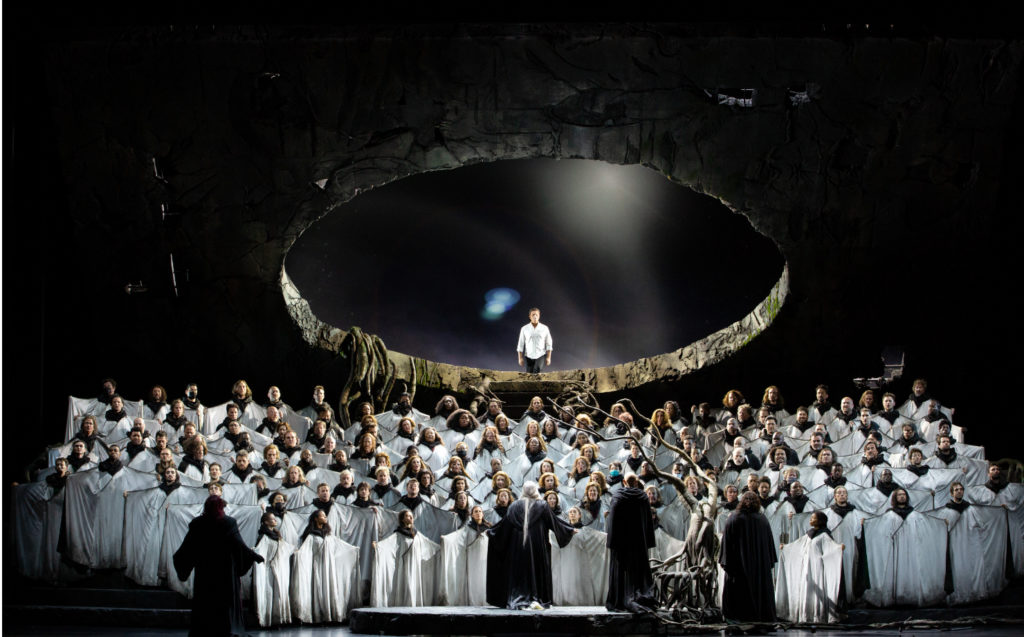THE HANGOVER REPORT – François Girard’s musically resplendent new production of Wagner’s LOHENGRIN continues the bleak saga that began with PARSIFAL
- By drediman
- March 3, 2023
- No Comments

Last night, I attended the Metropolitan Opera’s new production of Lohengrin by Richard Wagner. As one of the composer’s Romantic operas, the 1850 work includes elements of traditional grand opera (e.g., the large-scale choral passages), as well as the epic music dramas to come (e.g., the emergence of leitmotifs and philosophical musings of The Ring Cycle and Tristan und Isolde). In my estimation, the opera combines and balances both modes of music-making ideally. The story of Lohengrin is a simple one – the opera tells the tale of a mystical knight who brings order and righteousness to a Germanic kingdom weighed down by political division, corruption, and the outside threat of war.
As of late, François Girard has been the Met’s go-to director for its new Wagner productions, having previously staged Parsifal (2013) and The Flying Dutchman (2020) for the company. Although written prior to Parsifal, Lohengrin is actually a continuation of the Parsifal saga (if you’re new to the opera, no spoilers here). As such, it’s no surprise that Girard’s broad conception for the new production is consistent with his post-apocalyptic take on Parsifal – that which depicts humanity on the bleak, blasted edges of time and space (kudos to set/costume designer Tim Yip, lighting designer David Finn, and projection designer Peter Flaherty for realizing Girard’s pseudo sci-fi vision). The director has also found a clever and theatrical solution involving color-coded costumes to portray the community’s evolving allegiances, all the while alluding to the opera’s famous swan imagery. At some point in the future, the Met should consider bundling both productions to give opera fans the unique opportunity to experience the larger epic that transpires across Parsifal and Lohengrin.
In terms of the music-making, the performance was resplendent. First and foremost, Music Director Yannick Nézet-Séguin in the pit led a transcendent account of Wagner’s score that was both suspended yet dramatically alert. In the title role, busy tenor Piotr Beczała – making stylish use of both the heft and sweetness of his voice – was an ethereal presence throughout. Powerful sopranos Tamara Wilson (golden, pure) and Christine Goerke (earthy) were stunningly paired – both vocally and dramatically – as Lohengrin’s love interest Elsa and the evil sorceress Ortrud, respectively. Also rising to the occasion was the mighty Met Chorus, who produced a magnificent wall of sound that was a key contributor to the success of the evening, at least musically.
RECOMMENDED
LOHENGRIN
Opera
The Metropolitan Opera
4 hours, 45 minutes (with two intermission)
In repertory through April 1

 Copyright © 2025
Copyright © 2025
Leave a Reply